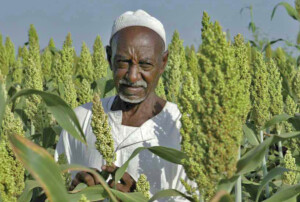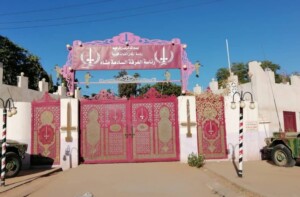‘Watery diarrhoea’ reported in Sudan’s Red Sea state
The hospital of Durdaib in Sudan’s Red Sea state recorded eight cases of acute watery diarrhoea – which is often caused by cholera* – on Tuesday following intense rains in the area.
 How to prevent the spread of cholera (Sudanese Doctors' Union)
How to prevent the spread of cholera (Sudanese Doctors' Union)
The hospital of Durdaib in Sudan’s Red Sea state recorded eight cases of acute watery diarrhoea – which is often caused by cholera* – on Tuesday following intense rains in the area.
Activists reported: “The town is witnessing severe environmental deterioration after the rainfall” and pointed to the widespread spread of flies and pollution of water sources.
In addition, they pointed out to the deterioration of the environment of the hospital of Durdeib, which is lacking most of the basic health services.
They said the residents are forced to travel 300 kilometres to Port Sudan for treatment.
They called on state and federal health authorities to urgently intervene to contain the disease.
Rainy season
As previously reported by Radio Dabanga, six cases of acute watery diarrhoea were admitted to Ed Damazin Hospital in Sudan’s Blue Nile State last month. The rains have also seen an increase in cases suspected to be the mosquito-borne haemorrhagic (severe dengue) fever admitted to Port Sudan hospital.
Suspected cholera
Sudan has experienced an epidemic since 2016 which the Sudanese government insists on calling ‘watery diarrhoea’ in spite of numerous independent confirmations (conducted according to WHO standards) that the disease which broke out in Blue Nile state in August 2016 was cholera, the Sudanese authorities and several international organisations persistently refer to it as ‘acute watery diarrhoea’.
The WHO and the Sudanese Ministry of Health reported in mid-October that the total number of recorded cases reached more than 35,000 people – including 800 related deaths. Doctors of Sudan’s National Epidemiological Corporation reported in early July however, that nearly 24,000 Sudanese had been infected and 940 cholera patients died.
In May, Sudan’s federal Minister of Health, Bahr Idris Abu Garda, declared that Sudan is now free of the 'watery diarrhoea' outbreak (suspected to be cholera) that hit various parts of the country during the past year.
*Cholera key facts (Source: WHO)
- Cholera is an acute diarrhoeal disease that can kill within hours if left untreated.
- Researchers have estimated that each year there are 1.3 million to 4.0 million cases of cholera, and 21 000 to 143 000 deaths worldwide due to cholera.
- Most of those infected will have no or mild symptoms, and can be successfully treated with oral rehydration solution.
- Severe cases will need rapid treatment with intravenous fluids and antibiotics.
- Provision of safe water and sanitation is critical to control the transmission of cholera and other waterborne diseases.
- Safe oral cholera vaccines should be used in conjunction with improvements in water and sanitation to control cholera outbreaks and for prevention in areas known to be high risk for cholera.
- A global strategy on cholera control with a target to reduce cholera deaths by 90 per cent was launched in 2017.
Follow #CholeraInSudan, #الكوليرا_السودان for ongoing coverage by Radio Dabanga











 and then
and then